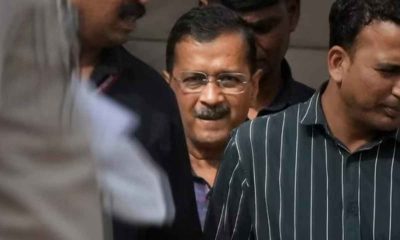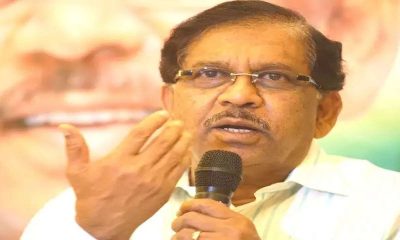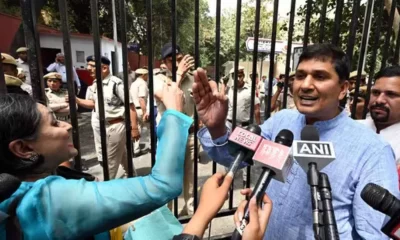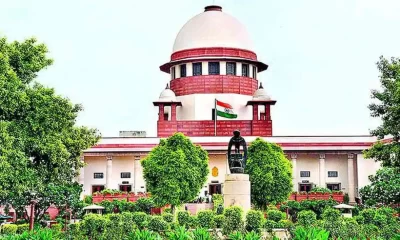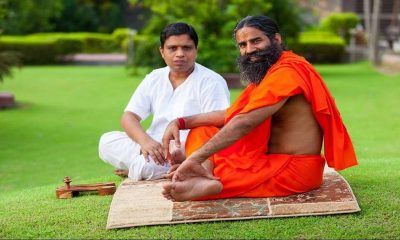India News
SC reduces Cauvery water allocation to Tamil Nadu, Karnataka to get more because Bengaluru needs it
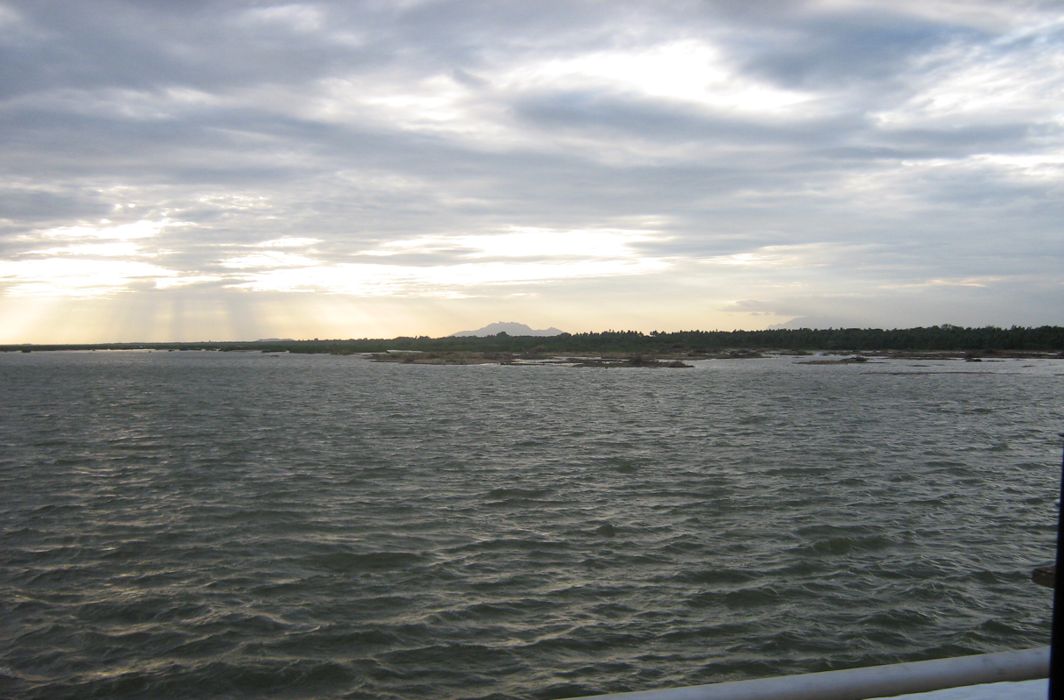
Court says agreements were not “political arrangements” but were based on public interest; decision valid for 15 years
The Supreme Court on Friday (February 16) ended the long-pending Cauvery river water dispute between Karnataka and Tamil Nadu by clearly demarcating the allocation of Cauvery water among Tamil Nadu, Karnataka and Kerala.
The bench comprising of Chief Justice Dipak Misra and Justices Amitava Roy, A M Khanwilkar reduced the allocation of water for Tamil Nadu by 14.75 trillion cusecs (tmcft). Tamil Nadu will now get 404.25 tmcft of Cauvery water instead of 419 tmcft allotted by 207 tribunal.
Karnataka will get an enhanced 14.75 tmcft of water which will now stand at 284.75 tmcft (including 4.75 tmcft for Bengaluru) as against the 2007 Cauvery River Water Disputes Tribunal award of 270 tmcft. The court’s logic on this was that the state needs more for its industrial use and for the use of the cosmopolitan city of Bengaluru.
However, the bench kept allocation of waters to Kerala i.e. 30 tmcft and to Puducherry i.e. 7 tmcft unchanged as per the 2007 tribunal award.
The bench directed that Karnataka will release 177.25 tmcft of Cauvery water to Tamil Nadu from its inter-state Biligundlu dam while justifying its decision for increased water allocation to Karnataka on account of drinking water requirement and groundwater for Bengaluru residents. The order on Cauvery water allocation will continue for next 15 years, the bench said.
The bench also allowed Tamil Nadu to draw an additional 10 tmcft of groundwater, from a total of 20 tmcft beneath the Cauvery basin.
Upholding the validity of 1892 and 1924 agreements on Cauvery river water allocation, the bench noted that these agreements were not “political arrangements” but were based on public interest. The bench observed: “The 1924 post-Mettur dam agreement expired in 1974. Now the principle of water allocation is based on “equitable apportionment” and not primacy.”
Adjudging inter-state rivers are national assets, the bench stated: “The Constitution gave equal status to all States. No one riparian State can claim full rights over it.”
During the hearing, the bench rejected the Centre’s argument that it was Parliament’s prerogative to finalise the water sharing scheme.
Welcoming the verdict, the Karnataka Chief Minister Siddaramaiah said: “This is good news for farmers in Cauvery basin and people of Karnataka.” Tamil Nadu’s AIADMK was careful in commenting on the decrease of allocation and said that it had to study the court’s order deeply before commenting.
Backgrounder
- The dispute dates back to 1892 when an agreement was filed between the Madras Presidency and Mysore for arbitration but led to a fresh set of disputes. Later, attempts were renewed to arbitrate between the two states under the supervision of the Government of India and a second agreement was signed in 1924.
- As Kerala and Puducherry also laid claim to a share of the Cauvery water after Independence, a Fact Finding Committee was set up in 1970 to resolve the situation on the ground. The committee submitted its report in 1972 and further studies were conducted by an expert committee. The states reached an agreement in 1976. However, after a new government came to power in Tamil Nadu, it refused to give its consent to the terms of the agreement.
- Later, in 1986, the Tamil Nadu government appealed to the central government to constitute a tribunal for solving the issue under the Inter-State Water Disputes Act, 1956. However, the tribunal was not set up until the Supreme Court took cognizance of the matter and ordered the central government to do so in 1990.
- The Cauvery Waters Tribunal was constituted on June 2, 1990. After 16 years of hearing and an interim order, the Tribunal announced its final order in 2007, allocating 419 tmc ft of water to Tamil Nadu and 270 tmc ft to Karnataka. Kerala was given 30 tmc ft and Puducherry got 7 tmc ft. The Tribunal had come to a conclusion that the total availability of water in the Cauvery basin stood at 740 tmc ft. However, both Tamil Nadu and Karnataka filed a review petition before the Tribunal.
- In 2012, Prime Minister Manmohan Singh, as chairman of the Cauvery River Authority, directed the Karnataka government to release 9,000 cusecs of water daily. The Supreme Court slammed the state government as it failed to comply with the order. The government offered an unconditional apology and started the release of water, leading to widespread violent protests.
- With the Karnataka government continuously failing to release the water to Tamil Nadu, Chief Minister J Jayalalithaa filed an interlocutory petition in the Supreme Court in August 2016, seeking release of water as per the guidelines of the Tribunal. Announcing its verdict in the case, the Supreme Court, on September 5, directed the Karnataka government to release 15,000 cusecs of water to its neighboring state for 10 days.
- The Supreme Court modified its order and asked Karnataka to release 12,000 cusecs of water every day until September 20, 2016.
- On September 20, 2017 while reserving its order Cauvery river water-sharing dispute directed Centre to frame a scheme for the implementation of its orders on river water-sharing between these states and Puducherry after the judgement is pronounced.
2024 Lok Sabha Elections
Prime Minister Narendra Modi urges citizens to vote in record numbers as voting for first phase of Lok Sabha elections begins on 102 seats across India
Union Home Minister Amit Shah also urged citizens to vote in large numbers and added that it is not only meant to determine the fate of a Lok Sabha or a candidate but also for shaping a bright future for the country.
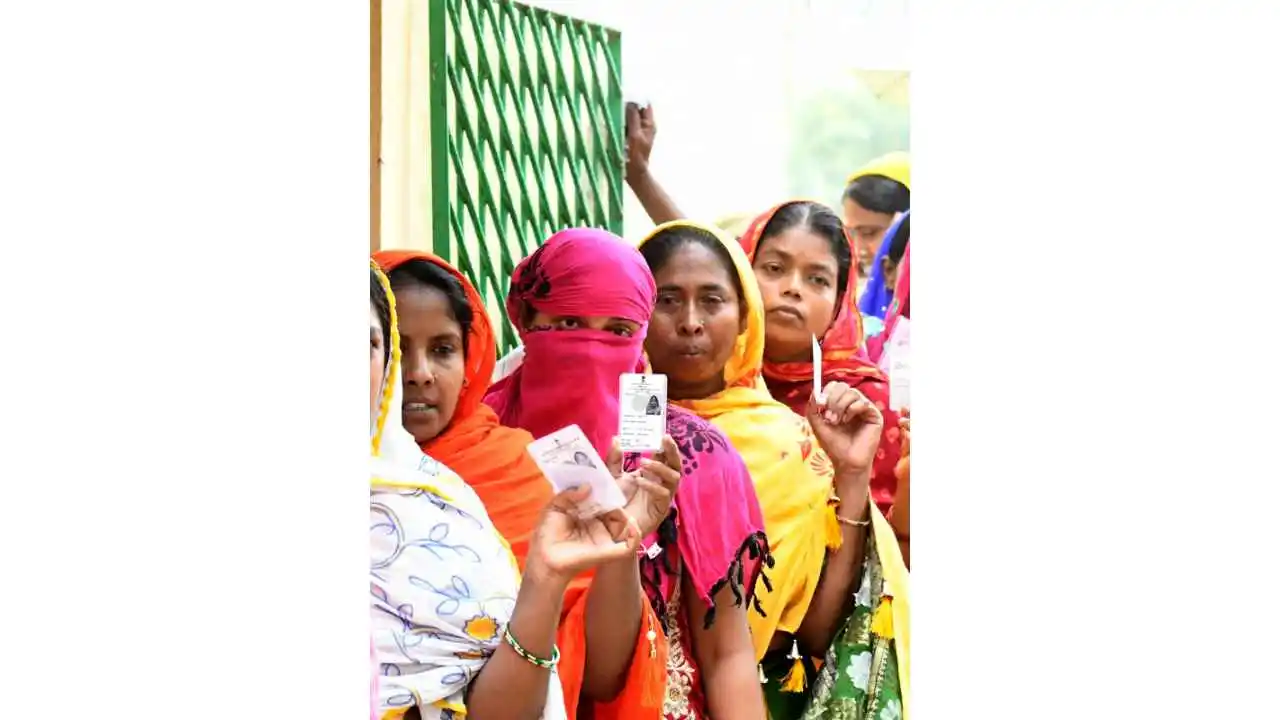
Voting for the first phase of Lok Sabha elections is taking place on 102 seats spread all over India. Prime Minister Narendra Modi took to X and urged citizens to vote in record numbers. He said he particularly called upon the young and first time voters to vote in large numbers. He added that every vote counts and every voice matters.
Congress leader P Chidambaram and RSS supremo Mohan Bhagwat cast their votes in Chennai and Nagpur, respectively. Chidambaram was confident that INDIA bloc will sweep all 39 seats in Tamil Nadu. Union Home Minister Amit Shah also urged citizens to vote in large numbers and added that it is not only meant to determine the fate of a Lok Sabha or a candidate but also for shaping a bright future for the country.
He appealed to all the voters who are voting in this phase to vote in large numbers because every vote of theirs has the power to create a secure, developed, and self-reliant India. He appealed to the people to choose a strong and decisive leadership that has shown the determination to free the country from corruption, nepotism, and appeasement while fulfilling its promises.
In the first phase, elections are being held on all seats in Uttarakhand (5), Tamil Nadu (39), Meghalaya (2), Arunachal Pradesh (2), Mizoram (1), Puducherry (1), Nagaland (1), Andaman and Nicobar Islands (1) and Lakshadweep (1), Sikkim (1). Besides, there is voting in 8 seats in Uttar Pradesh, and Maharashtra, 6 seats in Madhya Pradesh, 12 seats in Rajasthan, 4 in Bihar, 2 in Manipur, 3 in West Bengal, and 1 seat each in Jammu and Kashmir, Tripura, and Chhattisgarh. Assembly elections are also taking place on 60 seats in Arunachal Pradesh and 32 seats in Sikkim.
India News
Enforcement Directorate says Arvind Kejriwal is deliberately eating mangoes, sweets, taking sugar with tea to increase his blood sugar level and create ground for bail
The Enforcement Directorate (ED) made the claim before special judge for ED and CBI cases, Kaveri Baweja, who gave directions to the Tihar jail authorities to file a report in the matter which should also include Kejriwal’s diet chart.
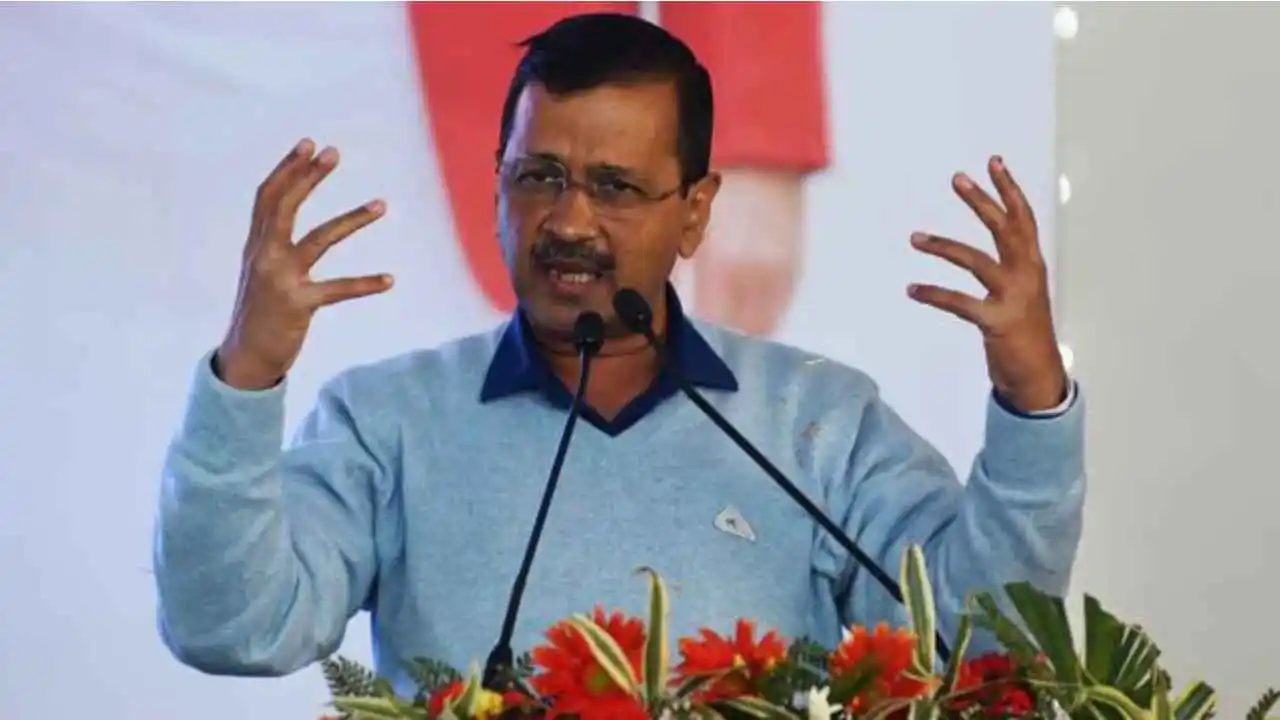
The Enforcement Directorate told the court on Thursday that Delhi Chief Minister Arvind Kejriwal, arrested in liquor policy case, is taking high sugar intake like mangoes and sweets every day deliberately in spite of suffering from type 2 diabetes so that he can create grounds for medical bail. The Enforcement Directorate (ED) made the claim before special judge for ED and CBI cases, Kaveri Baweja, who gave directions to the Tihar jail authorities to file a report in the matter which should also include Kejriwal’s diet chart.
Kejriwal had moved court and also sought permission to consult his regular doctor via video conference because his sugar levels were fluctuating. The judge directed the authorities concerned to file the report by tomorrow, when the court will take up the matter again.
Advocate Vivek Jain, counsel for Delhi CM Arvind Kejriwal responded to the ED’s argument and said this is an issue made by Enforcement Directorate so that home-cooked food should also be stopped. He said this would have a major impact on his health. Advocate Jain added that whatever Kejriwal is eating is as per his doctors prescribed dietary chart. He said the matter is sub judice and they do not have anything to say.
Advocate Vivek Jain objected to the Enforcement Directorate’s submission and said that the agency is making these allegations only for the media. He said that some toffee and other things are given to diabetic patients so that they can maintain their sugar levels. Jain added that Kejriwal is withdrawing his application and will file a better one later.
AAP minister Atishi Marlena said that Arvind Kejriwal had fallen ill and lost about 4.5 kg since his arrest on March 21. She addressed a press conference where the AAP leader said, Arvind Kejriwal is a severe diabetes patient but he never lets his health issue come as the way of his in the service to the nation.
India News
Enforcement Directorate seizes Shilpa Shetty’s husband Raj Kundra’s properties worth Rs 97 crore
The Enforcement Directorate said in a statement that the Mumbai zonal office of ED has provisionally attached immovable and movable properties of Kundra under the provisions of Prevention of Money Laundering Act (PMLA), 2002.

The Enforcement Directorate on Thursday seized businessman Raj Kundra’s properties worth Rs 97.79 crore. The siezed properties include a residential flat in Mumbai’s Juhu, which is named after his wife and Bollywood actor Shilpa Shetty. The Enforcement Directorate said the seized properties include another property which is a residential bungalow in Pune and Equity shares in the name of Raj Kundra.
The Enforcement Directorate said in a statement that the Mumbai zonal office of ED has provisionally attached immovable and movable properties of Kundra under the provisions of Prevention of Money Laundering Act (PMLA), 2002. The Enforcement Directorate began the investigation on the basis of a number of FIRs which were registered by Delhi Police and Maharashtra Police. It is being said that Kundra collected large sums of money in the form of bitcoins which were worth Rs 6,600 crore in 2017 from the public with the false promises of 10 % monthly return in the form of bitcoins.
The ED said that it was planned that the collected bitcoins will be used for bitcoin mining and investors will get to get a large return in Crypto assets. But the promoters cheated the investors as they concealed the ill-gotten bitcoins in obscure online wallets. The Enforcement Directorate revealed in its investigation that Raj Kundra received 285 bitcoins from the mastermind and promoter of Gain Bitcoin Ponzi Scam Amit Bhardwaj for setting up bitcoin mining farm in Ukraine.
The Enforcement Directorate in its statement said that the bitcoins were sourced out of proceeds of crime collected by Amit Bhardwaj from gullible investors. Since the deal did not go through, so Kundra is still in possession and enjoyment of 285 bitcoins which are valued at more than Rs 150 crore. Earlier a number of search operations were conducted in connection with this case, leading to the arrest of three people — Simpy Bhardwaj on December 17, 2023, Nitin Gaur on December 29, 2023, and Nikhil Mahajan on January 16, 2023.
-
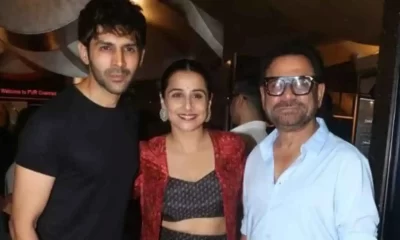
 Entertainment19 hours ago
Entertainment19 hours agoBollywood stars Vidya Balan, Kartik Aaryan, Pratik Gandhi, Ileana D’Cruz, Mouni Roy, Radhika Madan, Mrunal Thakur attend Do Aur Do Pyaar premiere
-
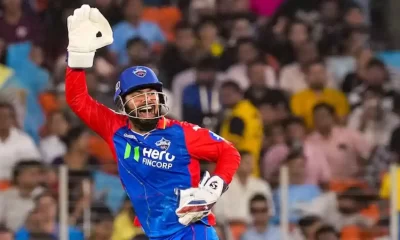
 LATEST SPORTS NEWS24 hours ago
LATEST SPORTS NEWS24 hours agoIPL 2024: Delhi Capitals thrash Gujarat Titans by 6 wickets
-
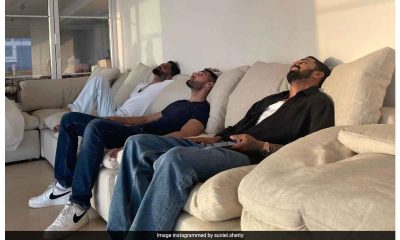
 Cricket news18 hours ago
Cricket news18 hours agoHappy Birthday KL Rahul: Suniel Shetty wishes son-in-law KL Rahul on his 32nd birthday
-
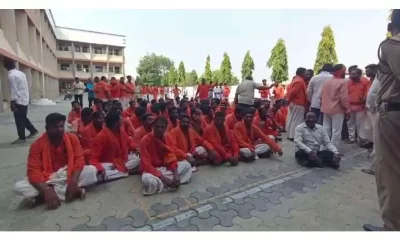
 India News21 hours ago
India News21 hours agoReligious outfit vandalises The Blessed Mother Teresa High School in Telangana after teachers object to students wearing Hanuman Deeksha dress
-
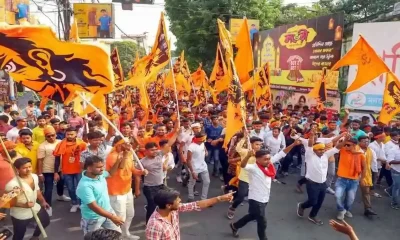
 India News22 hours ago
India News22 hours agoClashes erupt during Ram Navami procession in West Bengal’s Murshidabad district
-

 India News17 hours ago
India News17 hours agoEnforcement Directorate seizes Shilpa Shetty’s husband Raj Kundra’s properties worth Rs 97 crore
-
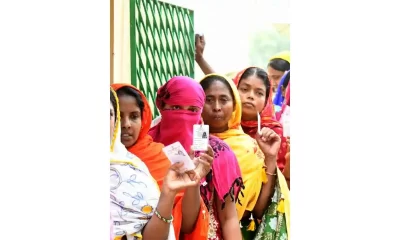
 2024 Lok Sabha Elections44 mins ago
2024 Lok Sabha Elections44 mins agoPrime Minister Narendra Modi urges citizens to vote in record numbers as voting for first phase of Lok Sabha elections begins on 102 seats across India
-
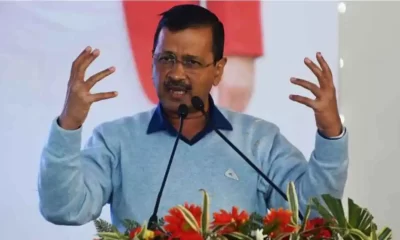
 India News15 hours ago
India News15 hours agoEnforcement Directorate says Arvind Kejriwal is deliberately eating mangoes, sweets, taking sugar with tea to increase his blood sugar level and create ground for bail

